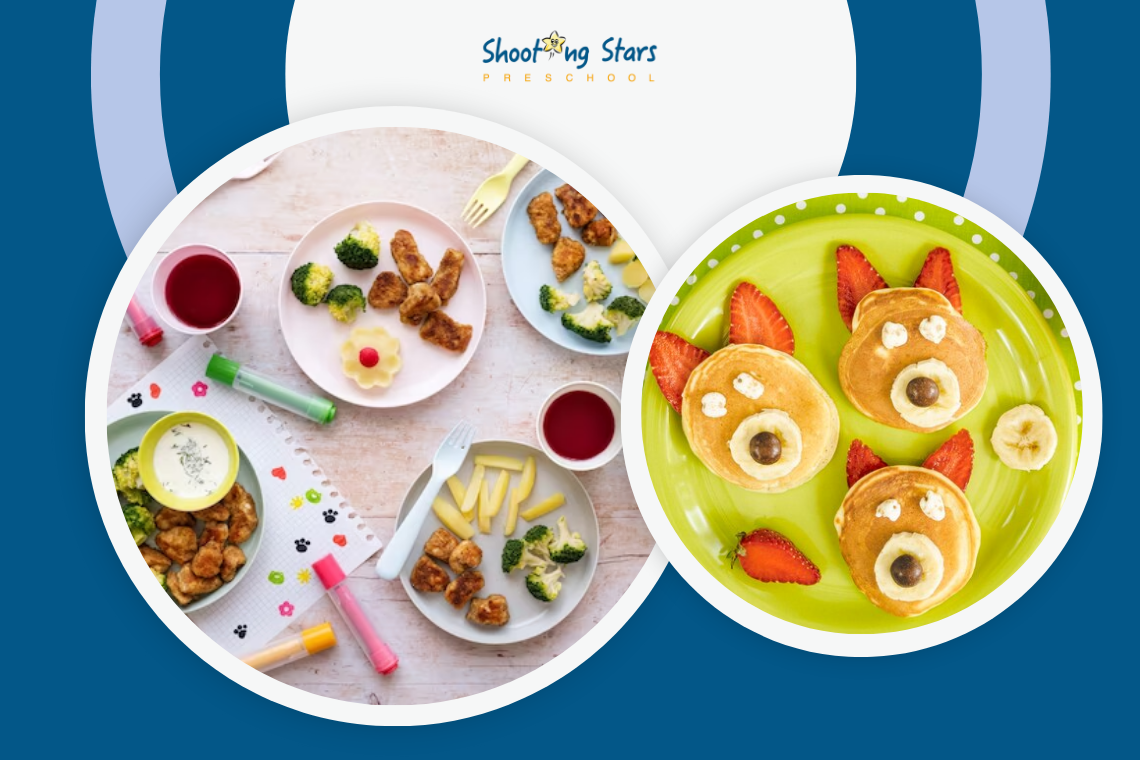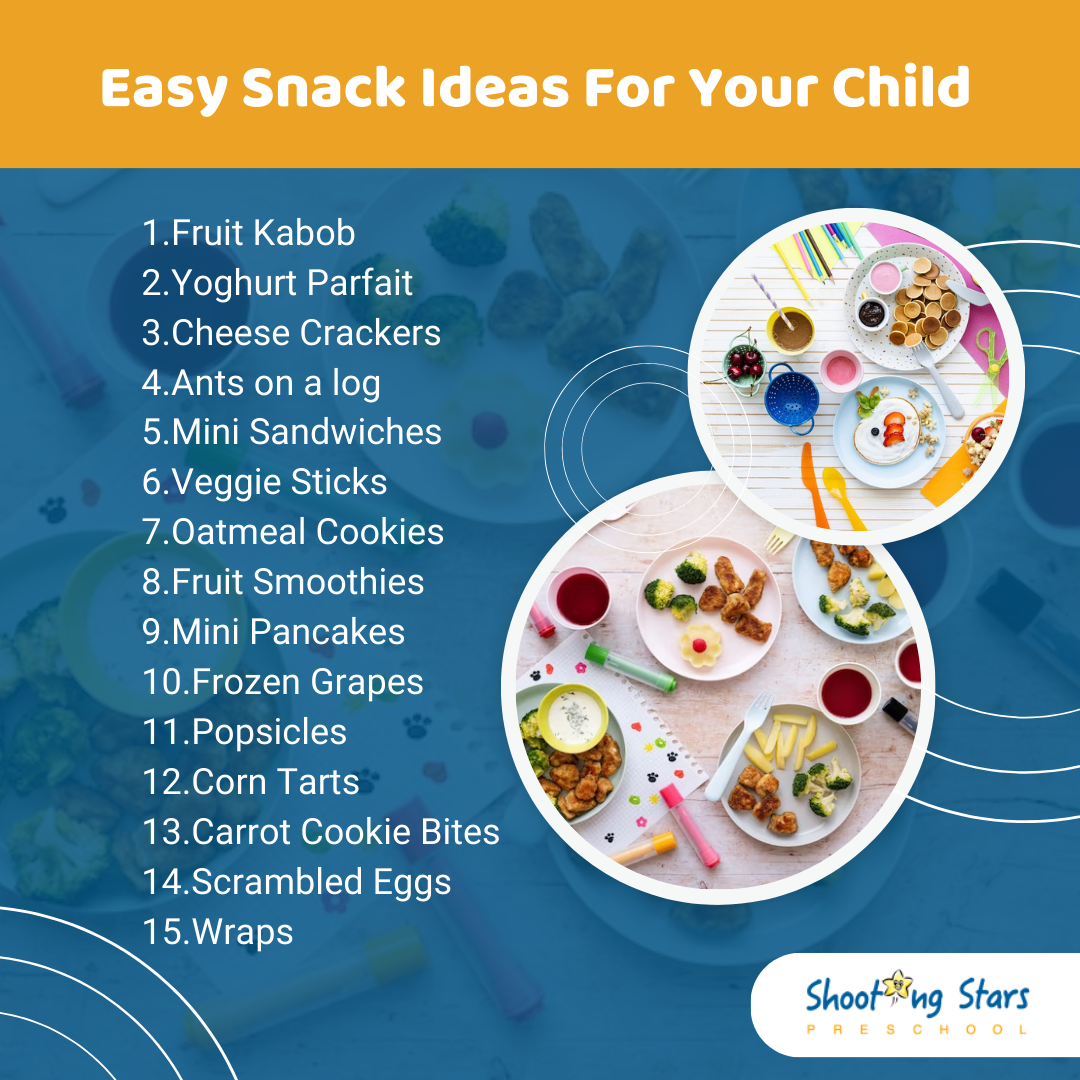|
When it comes to kids, snacking is important to keep their energy levels up. When choosing snacks for your little ones, remember to choose options that provide essential nutrients besides calories.
Sometimes, a snack can compensate for a missed portion of a meal. It's also a good idea to make snacks in sizes that can be easily eaten on the go. While snacking is important, monitoring your child's snack intake and regulating what and when they eat is important. Mix your daily routine and make healthy eating fun. And remember, it shouldn't be boring!
Why Is A Nutrition Diet Important For Toddlers?
Balanced nutrition is crucial for toddlers in their preschool and kindergarten stage because it supports their growth and development during this critical stage of life. Here are some reasons why it's important:
1. Growth and Development
Toddlers experience rapid physical and cognitive development. A balanced diet provides essential nutrients like carbohydrates, fats, vitamins, minerals, and protein that are necessary for healthy growth and brain development.
2. Immune System Support
Proper nutrition helps boost the toddler's immune system, reducing the risk of infections and illnesses.
3. Energy and Activity
Toddlers are often very active, and a balanced diet provides the energy they need for physical activities and play.
4. Cognitive Function
Nutrients like omega-3 fatty acids and minerals like iron are important for cognitive function, memory, and concentration.
5. Bone and Teeth Health
Calcium and vitamin D are vitally important for strong bones and teeth, which are developing rapidly in toddlers.
6. Establishing Healthy Eating Habits
Introducing a variety of nutritious foods at a young age can help establish lifelong healthy eating habits.
7. Avoiding Nutritional Deficiencies
A balanced diet helps prevent nutrient deficiencies, which can lead to health issues.
Overall, providing balanced nutrition to toddlers sets the foundation for their future health and well-being.
Essential Nutrients To Include In Child's Diet
As a parent, you know that your child's growth and development depend on the nutrients they consume. Here are some essential nutrients that your child should get daily.
Shooting Stars Preschool in Dublin encourages children to engage in cultivating an enthusiasm for nutritious snacks by creatively and innovatively highlighting their benefits.
Easy And Toddler-Friendly On-The-Go Snack Ideas And Recipes
Children who attend nursery and preschool are usually toddlers and generally tend to be picky eaters. It is a challenging task to make healthy ingredients attractive to the kids. Exploring creative ideas, incorporating different ingredients, and combining them with nutrition help accomplish the mission. Here are a few such recipes you must try on.
1. Fruit Kabobs
Thread small pieces of colorful fruits onto skewers for a fun and healthy snack.
2. Yogurt Parfait
Place layers of yogurt with granola and fresh berries for a tasty and nutritious treat.
3. Cheese and Whole Grain Crackers
Provide bite-sized cheese cubes with whole-grain crackers for a simple and protein-rich snack.
4. Ants on a Log
For a fun snack, spread cream cheese or peanut butter on celery sticks and sprinkle with raisins.
5. Mini Sandwiches
Create small sandwiches with peanut butter and banana slices or cream cheese and cucumber slices. Tunas with fresh vegetables also excite toddlers.
6. Veggie Sticks and Hummus
Offer carrot, cucumber, or bell pepper sticks with a side of hummus for dipping.
7. Oatmeal Cookies
Bake cookies with added fruits like raisins or apple sauce for a sweet and nutritious treat. Ragi, granules, and almonds are also better options for cookies.
8. Fruit Smoothies
Blend yogurt, frozen fruit, and a splash of juice for a refreshing and vitamin-packed smoothie.
9. Mini Pancakes
Make small, bite-sized pancakes and serve them with a dollop of yogurt or a drizzle of honey.
10. Frozen Grapes
Freeze grapes for a cool and naturally sweet snack that toddlers love.
11. Popsicles
Popsicles with different flavors of fresh fruits are some things the child could never deny.
12. Oats Cakes
Serve a plate of mini cakes with hidden vegetables like carrots and the goodness of oats.
13. Savoury Corn Tarts
These savory maize tarts are gluten-free and filled with delicious cheese and vegetables. They're a clever way to get your child to eat healthily, and these little tartlets work like a charm.
14. Dates and Cashew Vegan Balls
These bite-sized rounds are a wholesome and delicious snack for kids, made with dates, cashews, and coconut.
15. Carrot Cookie Bites
The aroma of these soft and delicious baking cookies is irresistible! I'm always asked for the recipe.
16. Scrambled eggs
Muffin-baked scrambled eggs also join the menu list as an attractive snack option.
17. Wraps
Traditional wraps can be replaced with options such as fruits and nuts on a chocolate spread or a jam.
18. Smoothies
Different flavors of fruit smoothies topped with a little tint of the kid's favorite ice cream flavor are always a hit with toddlers.
Conclusion
Remember always to supervise toddlers while they're eating and be mindful of any allergies they may have. Adjust the serving sizes to match their appetite and age. When creating a diet chart, parents must consider a child's health, allergies, digestive capacity, and absorption capacity, as every child is different.
Comments are closed.
|



